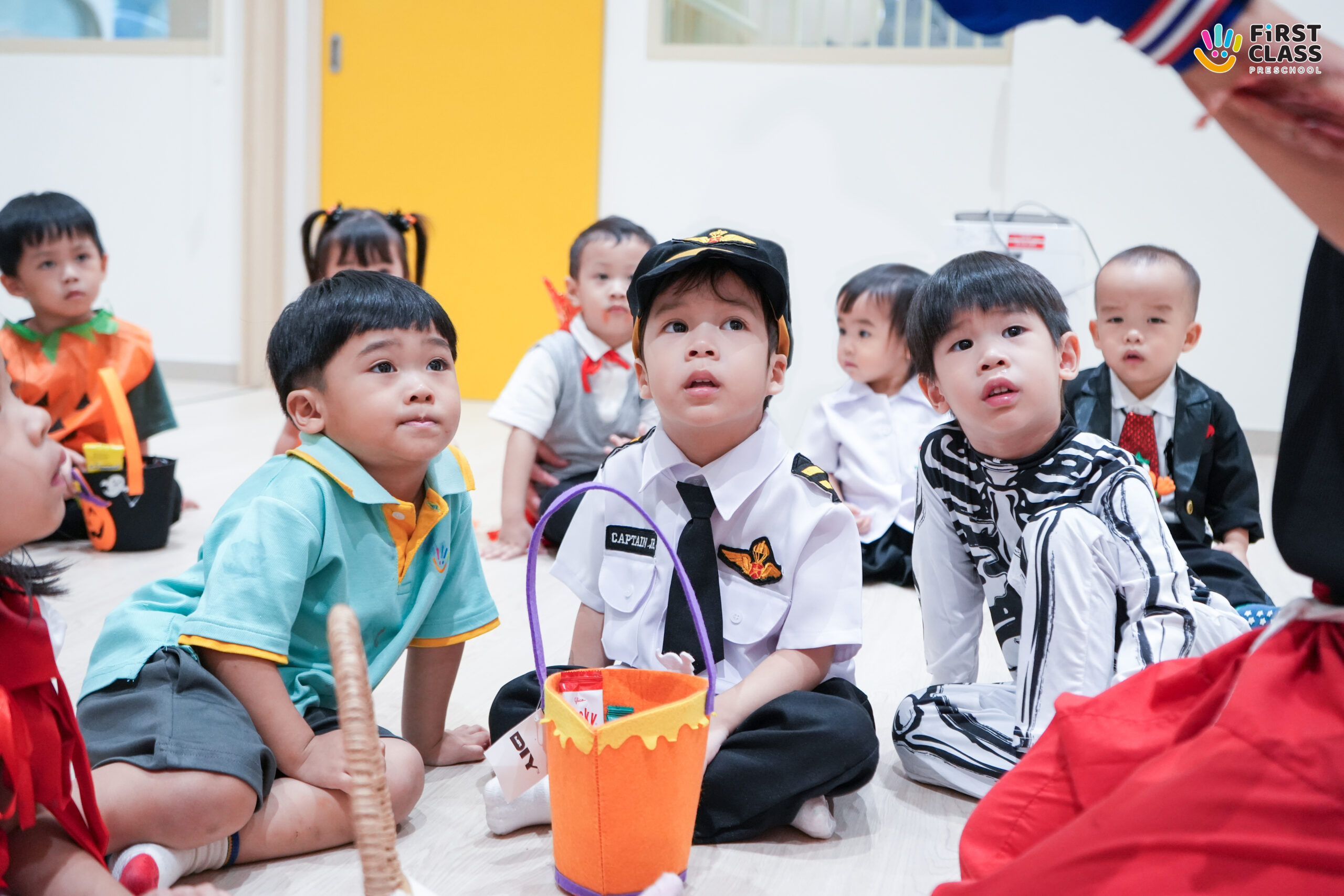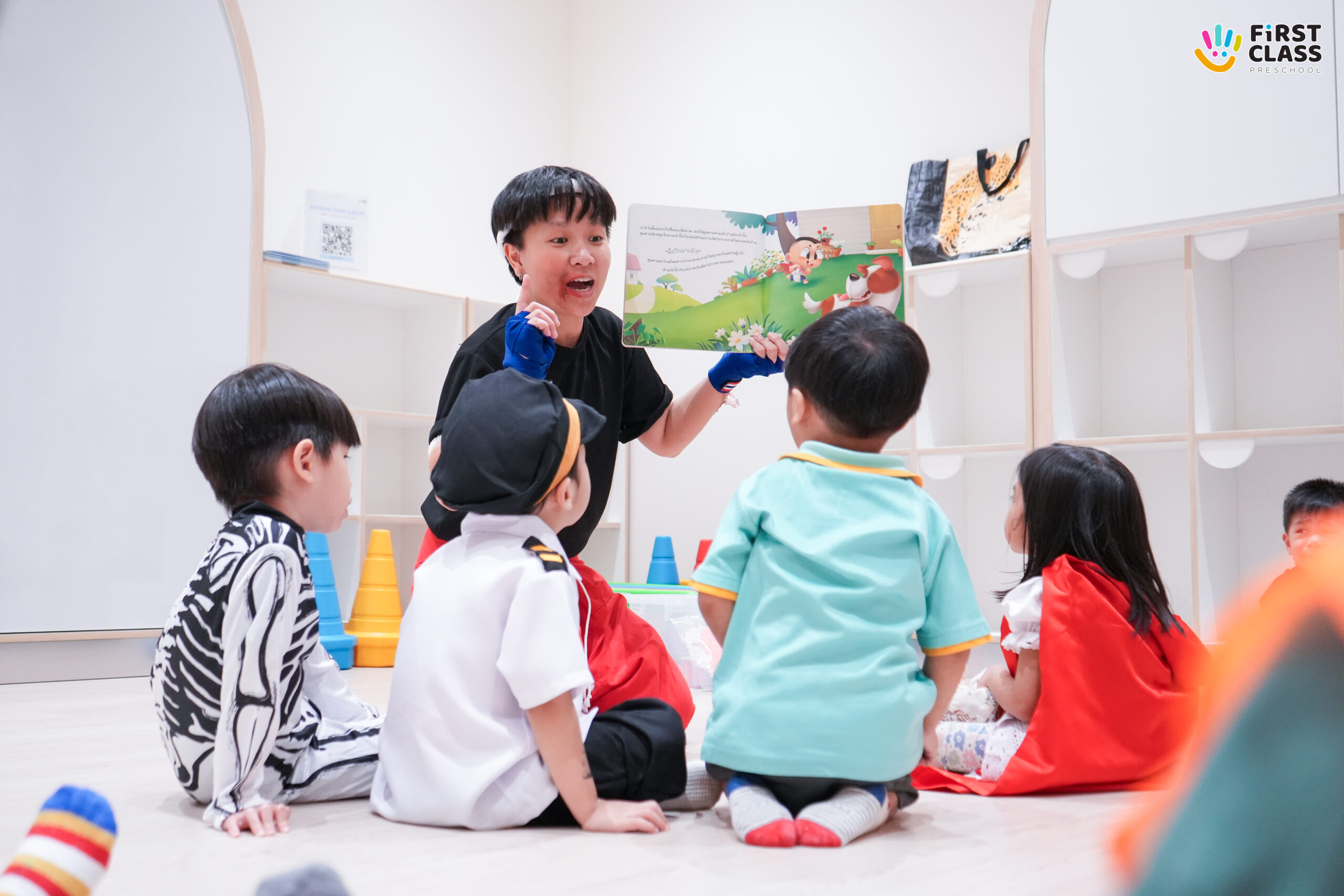Based on the research “3 Dimensions of Human Development by Asst.Pro.Dr. Panadda Thanasetkorn,” healthy relationships help the brain and mind work together in balance, leading to appropriate behaviors and personalities. At First Class Preschool, we believe that working hand-in-hand among parents, guardians, and our teachers will effectively promote the development, abilities, and desirable behaviors in young children. Therefore, our curriculum lies upon the predominant “3 Dimensions of Human Development” which include: 1) Four dimensions of development, 2) Sense of self development, and 3) Development of Executive Function (EF) skills.

1.Four Dimensions of Development
The four dimensions of development refer to the changes and enhancement of skills in physical, emotional, social, and cognitive aspects in a sequential and orderly manner according to human age.
Our teachers understand the four dimensions of development to:

2. Sense of Self Development
The dimension of sense of self development refers to the gradual and systematic changes in the ability to perceive one’s own feelings and thoughts throughout the different stages of human life.
Three stages of sense of self development:
First Class Preschool Curriculum believes that the quality of relationships formed during early childhood is a crucial starting point for learning about oneself and the world around them, shaping attitudes towards themselves and the world, as well as developing ways to adapt and live happily in this world in the future.

3. Development of Executive Function (EF) skills
EF skills are high order thinking processes of the brain, regulating feelings, thoughts, and actions to achieve goals by drawing on past experiences to process them together with present situations to analyze, make decisions, solve problems, control emotions, plan, prioritize, and persist until they achieve set goals.
Since EF requires past experiences for processing, these “past experiences” must be of sufficient quality for EF to function effectively. The experiences that children receive from birth to 6 years old serve as the foundation for EF development in later stages. A crucial factor in establishing EF skills is the relationship between the child and the caregiver, as well as opportunities for participation in learning activities, play, and taking responsibility for their own roles.
Although EF skills are high-level brain processes that utilize consciousness, focus, and intelligence in life, they must start with the development of the sense of self. When a child feels a sense of belonging, significance, and competence, their EF skills can function effectively, allowing them to regulate their feelings, thoughts, and actions, leading to the development of physical, emotional, social, and intellectual skills.
Conversely, if a child feels a lack of self, insecurity, and cannot trust their caregiver, the brain and psychological structures related to defense mechanisms will activate and obstruct EF functioning. The defense mechanisms in children manifest in three forms: fight, flight, or freeze.
Categories
Recent Article
Blogs
Read Related Article
First Class Preschool Central Westville
First Class Preschool Central Eastville